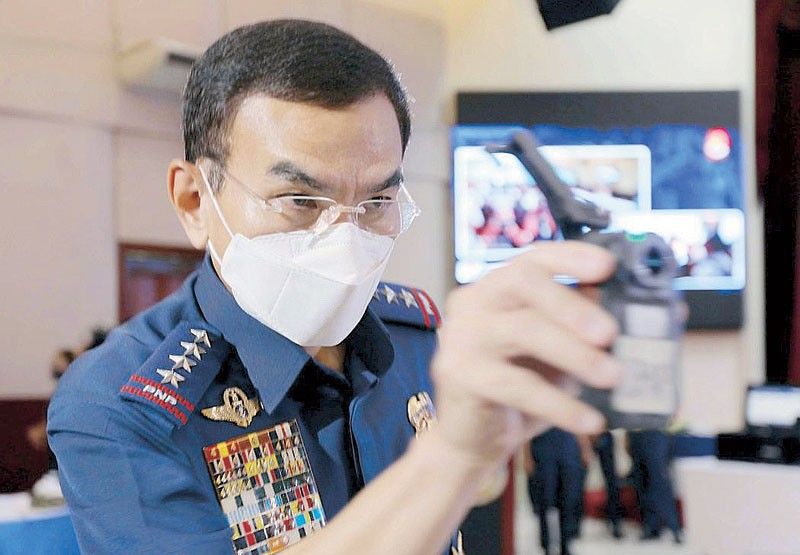SC requires law enforcers to wear body cameras when serving warrants

MANILA, Philippines — The Supreme Court (SC) has released a resolution detailing the rules on the use of body-worn cameras to all applications, issuances and execution of arrest and search warrants.
In a 17-page resolution released to reporters on Friday night, the SC said the trial court shall issue an arrest warrant with an order requiring the use of at least one body camera and an alternative recording device if the judge finds probable cause.
The body camera and the alternative recording device will be used to capture and record relevant incidents during the execution of warrants and must be worn in “conspicuous location,” meaning it should be in plain sight.
If a body-worn camera is not available, the SC said enforcement officers who will implement the warrant shall file an ex parte motion, requesting to use alternative recording devices for justifiable reasons.
The SC said the officers must use at least two alternative recording devices if a body-worn camera is unavailable.
The SC said enforcement officers must notify the persons who will be arrested that the execution of a warrant of arrest is recorded, and that the cameras’ video and audio functions must be activated as soon as the operation starts.
The body-worn cameras or alternative recording devices will only be turned off once the issuance of warrants or execution is terminated and the arresting officers have already sent the arrested persons to the nearest police station or jail.
All recordings shall be stored in an external media storage device and simultaneously deposited in a sealed package with the issuing court.
The SC said that should law enforcers fail to observe the proper wearing of body-worn cameras and alternative recording devices, the arrest and the evidence obtained will be considered “inadmissible” in court.
The law enforcers who fail to follow the rules, without reasonable grounds, “may be held liable for contempt.”
The SC said that body-worn cameras or alternative recording devices may be turned off if communications between law enforcement personnel are unrelated to the operation and during encounters with undercover officers or confidential informants.
Body-worn cameras or alternative recording devices may also be switched off on non-work related activities; worn inside restrooms or any places where there is similar expectation of privacy and conducting tactical planning.
Privileged communications between the subject of recording and other individuals such as lawyers, members of the clergy, peer support counselors and medical professionals can also be considered in switching off the cameras.
The SC said the recordings cannot be deemed as substitutes for the presentation of witnesses.
PNP forms TWG
Yesterday, the Philippine National Police (PNP) chief thanked the SC for its resolution and said the police would study the newly issued guidelines carefully.
“We express our sincerest gratitude to the Supreme Court headed by Chief Justice Alexander Gesmundo for helping us craft a legal framework on the use of the body-worn cameras,” Gen. Guillermo Eleazar said.
Eleazar immediately ordered the creation of a technical working group (TWG) to study and incorporate the rules issued by the SC into the PNP guidelines.
He said the PNP Directorate for Operations and the Directorate for Investigation and Detective Management would come up with a recommendation on the composition of the TWG.
He said the TWG will come up with modules the police officials will use in the training and seminar programs on the legal aspects on using of body cameras.
“The rules on the use of the body-worn cameras crafted by the High Court is a big help to erase doubts and speculations in the conduct of our operations, especially in our aggressive campaign against illegal drugs,” Eleazar said.
The PNP said at least 30,000 body cameras are needed to cover all police stations and offices nationwide. To date, 2,696 body cameras have been distributed to 171 police stations and offices. – Emmanuel Tupas
- Latest
- Trending























